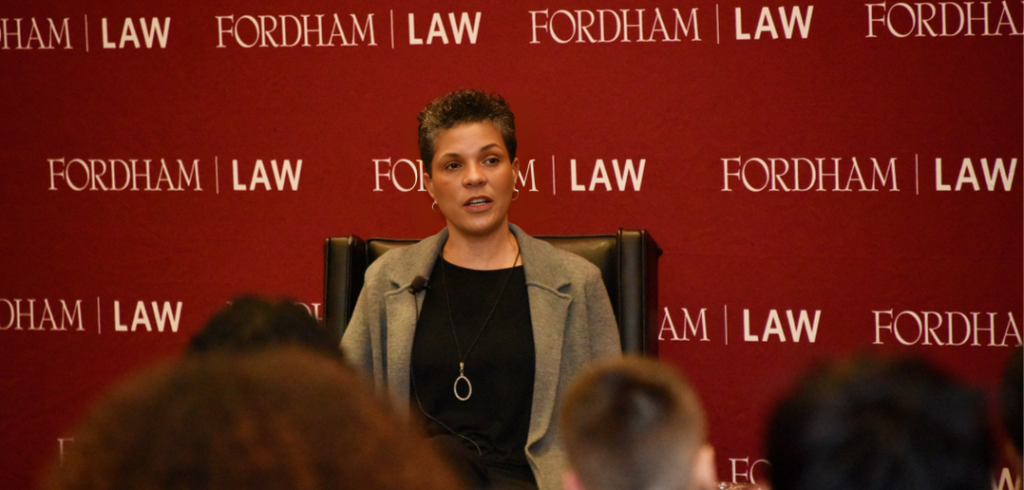Acclaimed civil rights lawyer and scholar Michelle Alexander is best known for her groundbreaking book The New Jim Crow: Mass Incarceration in the Age of Colorblindness, which upended existing ideas around criminal justice reform when it was released in 2010.
Alexander’s bestselling book has been widely read by students and legal scholars alike. “[It] is one of the iconic texts of our time,” said Dean Matthew Diller in his introduction of Alexander. “It is one of the few books that I can think of that really changed the conversation in our country.”
Alexander released a 10th anniversary edition of the book in 2020 during the height of the Black Lives Matter movement, proclaiming “we have not ended racial caste in America; we have merely redesigned it.”
Alexander was the featured speaker at Fordham Law School’s third annual Eunice Carter Lecture. The series is named for one of the first Black female prosecutors in the United States and graduate of Fordham Law’s class of 1932.
Alexander spoke about her career as a civil rights attorney and director of the Racial Justice Project for the ACLU, and how she came to first encounter the issues she focused on in her book.
After starting law school filled with what she called “naive idealism,” Alexander says she was challenged by new ideas that were critical of how the criminal justice system and litigation might be used to bring about real social change. But it wasn’t until years later, while working on a case where she was representing victims of police brutality that she began to have an “awakening” as to just how entrenched the systems of racial inequality were in the legal system.
She said, “There’s so much that was invisible to me, even as a civil rights lawyer. I was in denial about the extent to which our criminal punishment system was functioning as a caste system, locking people and entire communities into an inferior second class status.”
Despite ongoing challenges, Alexander said there is still cause for hope. She said that she often looks to the “heroism, determination, perseverance and courage of formerly-incarcerated people” as a source of hope, citing Susan Burton, a formerly incarcerated woman turned founder of A New Way of Life, a national nonprofit that provides housing and support for other formerly incarcerated women.
“You see the extraordinary difference that she is making—whether or not the world changes whether or not mass incarceration comes to an end—she is committed to making a difference in the lives of those who she can touch and she can reach. That inspires me and reminds me that it’s not about winning in the end. It’s about showing up every day with courage and compassion, and a willingness to do what you can,” said Alexander.
“Knowing that things change no matter what, and the question is how will they change, reminds me that what I do while I’m here… matters,” she added. “And what we do collectively matters even more. And that gives me hope.”

